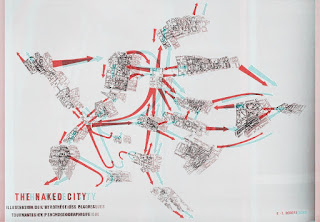Experimenting with “Situations”

Situationism calls attention to the priority of real life, real live activity, which continually experiments and corrects itself, instead of just constantly reiterating a few supposedly eternal truths like the ideologies of Trotskyism, Leninism, or Maoism. Static ideologies, however true they may be, tend, like everything else in capitalist society, to rigidify and become fetishised, just one more thing to passively consume. Partly as a result of this, Situationist ideas are notoriously difficult to explain, and open to a wide degree of interpretation. However, a few facts can be stated. Most introductions to the Situationists focus on their cultural ideas, particularly in relation to detournement (subverting elements of popular culture) but the roots of Situationist ideas are in Marxism. Libertarian Marxism, closer to anarchism than authoritarian strands of traditional Marxism, with the central idea that workers are systematically exploited in capitali...




